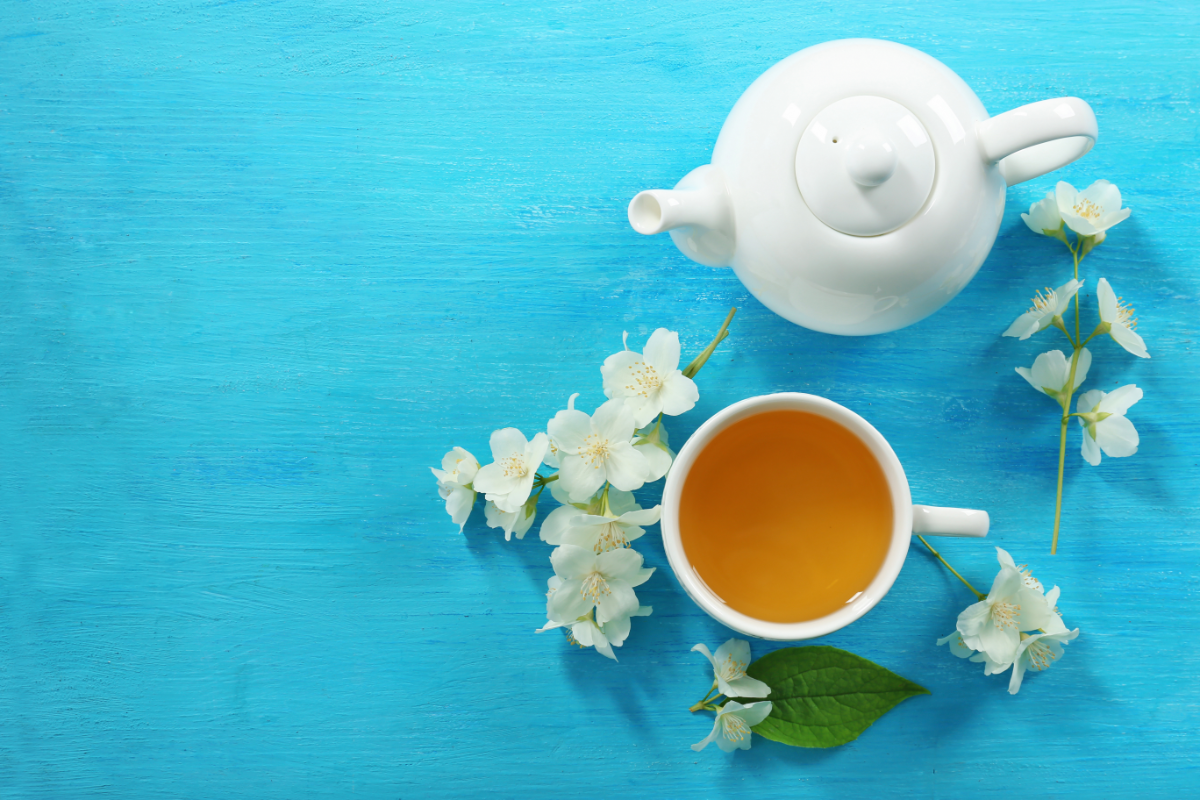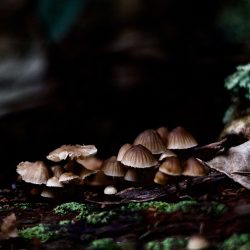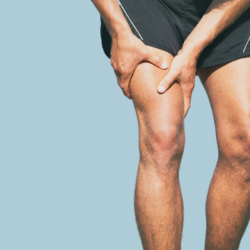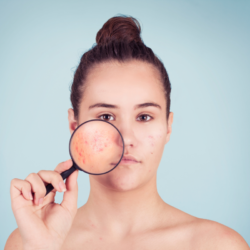Your dinner is over, the table is cleared and the last tasks of the day completed. The fireplace crackles gently and you’re ready to enjoy your evening. What could be more enjoyable than a moment of rel axation and taste with a herb al te a?
Autumn is the perfect time to resume this habit that can be perpetuated all year round.
Beyond the very cocoon ing side of the he rbal t ea by the fire under his favorite plaid, there are good reasons to get started.
A herbal tea, of many virtues
First of all, let’s think it’s a good way t o hydrate. Too many people drink too little during their day, and evening tea can help fill the water gap.
Hot drinking has considerable benefits: increased intestinal peristalsis, transit regulation, liver decongestion.
The “simple” used to prepare your herbal tea will release their aromas and active molecules by infusing in hot water. The heat of the water allows a better extraction of the active ingredie nts of the plants as well as their better assimilation by the body. Indeed, “the power of dissolution of plant active ingredients is increased by heat. This allows the dilation of plant tissues and thus promotes a greater release of certain active molecules as well as mineral salts.»
Thus, to the olfactory and taste pleasure of a herbal tea is added a beneficial effect for our h ealth.
How do you prepare your herbal tea?
A g ood herbal tea is prepared wit h quality water and plants.
Use low mineralized spring water (the lowest possible dry residue, less than 150 mg/L if possible) to preserve the liquid’s purifying potential and not over-solicit your ki dney function.
The medicinal plant s chosen must come from organ ic farming because as water extracts their active ingredients, it also extracts toxic products contained such as pesticides…
The drying and conservation technique is also to be considered. The plants you buy must have retained their colour and smell. Tra de infus ers, despite their practical appearance, will keep for less time.
Conservation:
To keep the plants you have harvested or purchased, opt for a glass jar or cloth bag, and leave them in a dry place away from the light. Depending on the plant, the shelf life can range from 1 to 3 years.
- The preparation technique depends on the density of the part of the plant you want to use:
f or tender pa rts such as le aves o r flowe rs, a n infusion should be made to bring the water to a boil before dipping the plants, then to be infused for about 5 to 10 minutes before tasting. - for de nser or more woody areas such as bar k, ba rk or ro ots, the p lant s hould be immersed in cold water and heated to the boiling point. From this point on, you have to boil for another ten minutes.
- to preserve certain components of the plant, it may be useful to macerate. For example, v itamin C, which is found in interesting proportions in some plants, is destroyed at 60 degrees.This involves soaking the plant in cold water (from a few hours to several days depending on the species), and then filtering the contents that can be cooled.
Which plants to choose?
The range of simple ones is wide and your choice will be based on your needs and tastes.
Active molecules act on specific functions and their action can be digestive, dethrifying, relaxing, circulatory, etc.
The association of several medicinal plants can sometimes be interesting, but beware of antagonistic associations. For example, a lime-m int mixture is inconsistent. On the one hand the mi nt will have a ne rvous and gastric st imula ting effect, while the lime t ree will have the opposite effect.
In all seasons and at any time
Despite the title of the article, drinking herbal teas is a habit of astonishing simplicity that can be pract iced in all seas ons and at any time of the day.
During the fall and winter, hot herbal tea will help the body mainta in body heat an d will be energi zing (“yang” if we refer to traditional Chinese medicine).
During the summer, hot drinking will also support the body in its thermal regulation effort, causing a slight sweating that will result in a refreshing action. Just think of the Berbers Tuareg who consume hot tea despite high outside temperatures, or the Chinese who drink hot or lukewarm even during their meal.
Herbal teas are consumed at any time of the day and will be a great substitute for exciting alkaloid-rich beverages.
Does herbal tea really have a therapeutic power?
Th e healing power of a herbal tea is obviously very light. On the other hand, making a cure by choosing a specific plant over a period of at least 3 weeks by consuming 5 to 6 cups of herbal tea a day will undoubtedly have a therapeutic effect.







